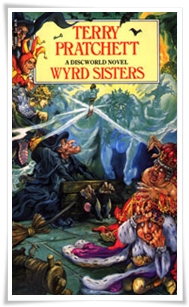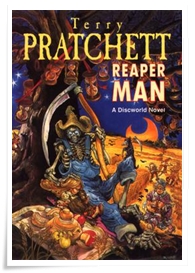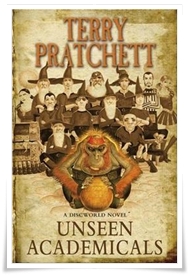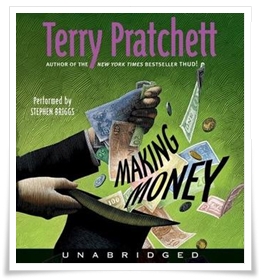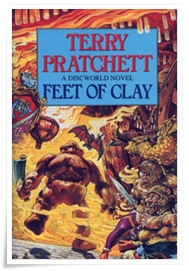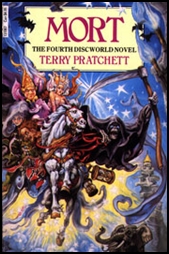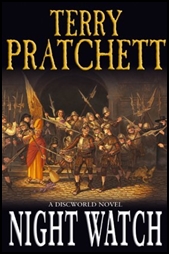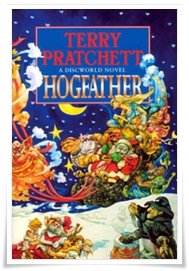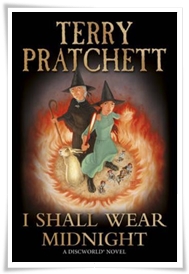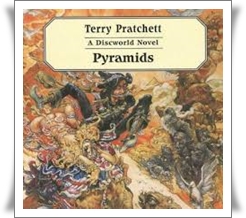Wyrd Sisters
by Terry Pratchett (Victor Gollancz, 1988); audiobook read by Celia Imrie (Isis, 1996)
Terry Pratchett tells comic stories within stories within Shakespearian tragedy as the King of Lancre is murdered and Granny Weatherwax and her fellow witches take centre stage in the unfolding history of his succession. Celia Imrie does a wonderfully witchy job narrating.

